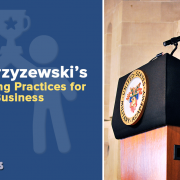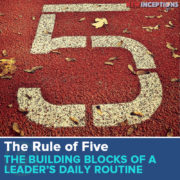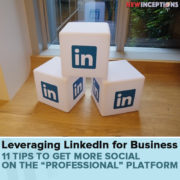Coach Krzyzewski’s Best Coaching Practices for Sports and Business
When many people think of coaches, they automatically think about those who coach in sports. However, those of us who are entrepreneurs know that there’s all kinds of coaches. Back when I first published this post on December 18, 2011, I had recently done a comparison of sports coaches and whether or not their practices transferred well to professional coaches. One such comparison I think transfers well was “Lombardi Time”. Today I think of it as “If you’re early, you’re on time. If you’re on time, you’re late.”
So, to make sure you’re on time ALL the time when you’re trying to make a good impression – set that clock for 10 minutes ahead!
Another sports coach that we can get a lot of takeaways from is coach Mike Krzyzewski of Duke Basketball.
There’s been a number of people through the years who have studied the mindset and habits he forms with his players.
Here are a few that I think are notable.
Coach K’s Practices:
Overall Mindset:
“Why do you play a game? I play a game to see how good we can be.”
Slightly different than the mindset of coach Herm Edwards who responded to this question with the infamous quote “You play to win the game!”. One might think that these are the same thing, but they’re slightly different. Personally I would mix these two quotes into something like “I play a game to see how good we can be in winning the game!!”
Why is this first part of important? Because if your foundation isn’t strong, then winning games becomes almost luck at times. Other times you might try and win by not being completely moral about the way you got there. Many believe that as long as you’re “winning” it doesn’t matter how you get there. Heck, that might as well be a Charlie Sheen quote.
Interestingly, that’s probably why his whole situation was amusing to all of us. It showed us as a society that “winning” is almost cliche. That we all, at one time or another, don’t care how we win – just as long as we do.
On Defense:
A sign prominent in the Duke locker room: NO ONE PENETRATES OUR DEFENSE.
In the world of college basketball, defense is key to winning games. If you build your team based on playing good defense, then you won’t be scored on and you won’t give the opposing time at the line throwing free throws. Defense is more important than offense, it would seem.
“He’s coaching like he’s defending the most precious thing in the world to him, and he does everything with the passion you would as if your were defending the most precious thing in the world to you,” said Steve Wojciechowski, a former Duke player (1995-98) and now a Krzyzewski assistant.
And they are – they are defending the standards of their program. Chances are when they lose games, it’s probably that they were beat by a better team and/or they didn’t play good defense. The Blue Devils place equal stress on keeping opponents off the line. Krzyzewski considers that a “critical” aspect of playing intelligent basketball. His teams practice situations in which they have six fouls and must strive to play tough defense without incurring a seventh that would put the opposition on the line with a one-on-one opportunity.
On Offense:
Duke is known for getting to the foul line on offense, often attacking the basket with dribble penetration. For many teams that they face, this is probably a great concern. But that’s just scratching the surface. Coach K. says, “I have a plan of action, but the game is a game of adjustments. Our offense is based on thinking. If you can really think on the court, then you have as much freedom as your abilities will allow you. What you try to do is create roles for your players. Not numbered roles or titled positions, but you try to say, ‘Look, here is where you’re successful, now in this frame of reference you can do whatever the defense allows you, so read the defense.”
In true leadership, this is knowing what the strengths of your players are and putting them in the team accordingly. Put them in a position where their natural abilities let them excel. As a coach/leader, we need to recognize these natural talents early on so we don’t waste time forcing a square peg in a round hole. However, there’s nothing wrong with rounding the edges of the square peg just a bit to help them be more flexible. Just don’t expect them to be as good as a natural in that position.
On Recruiting:
That last point brings up another good one. Back in my LTD days, I remember my upline Greg and the other Diamonds on the team talking about how they got the chance to watch Duke practices on an annual basis. One thing that stuck out to me that Greg mentioned was that the best coaches aren’t necessarily the greatest at coaching. They’re just really great at recruiting. Great coaches find talent that want to get to the next level. It limits the amount of conflict that occurs between the “players” and the coach. “I don’t need to necessarily be a great coach to my players,” said Greg. “I just got really good at picking good talent that make me look good!”
Other Quotes for You to Think About:
Here’s a few handpicked quotes that I think are pertinent to building a winning mindset and positive habits.
“I don’t think we surprise people. We try to out-execute them.”
-Coach K
“Last year, I said I wonder where we’ll put the second banner. We’ve got to find out, don’t we? I’m probably stupid for saying this, but I wonder where a third one might go.”
-Coach K
“The best teams are teams in any sport that lose themselves in the team. The individuals lose their identity. And their identities come about as a result of being in the team first.”
-Coach K
“You can’t defer if you’re the person who’s in the leadership position.”
-Coach K
“I think leadership is never singular. In a good organization, it’s plural.”
-Coach K
Action Steps
Love him or hate him, you gotta admit that Coach K is a great coach. He’s written several books that I’m a fan of. If you want a good book of his that I read a few years back, check out Leading from the Heart. If you liked the quotes, I got them specifically from a book called Coach K’s Little Blue Book. While it’s an older one, I highly recommend checking it out if you’re a sports fan and like applying successful principles into your life.
I’m not the biggest of basketball fans, but I really respect Coach K’s philosophy. To me it seems that having the structure that he gives his teams is the number one reason they do so well. I think that any coach that takes some of his style of coaching is setting their players or clients up for success.
If you’re a coach, how could you implement this into how you interact with those you’re working with? If you’re already having success as a coach, what kind of success principles have you been using to get your people to perform as well as they have?








